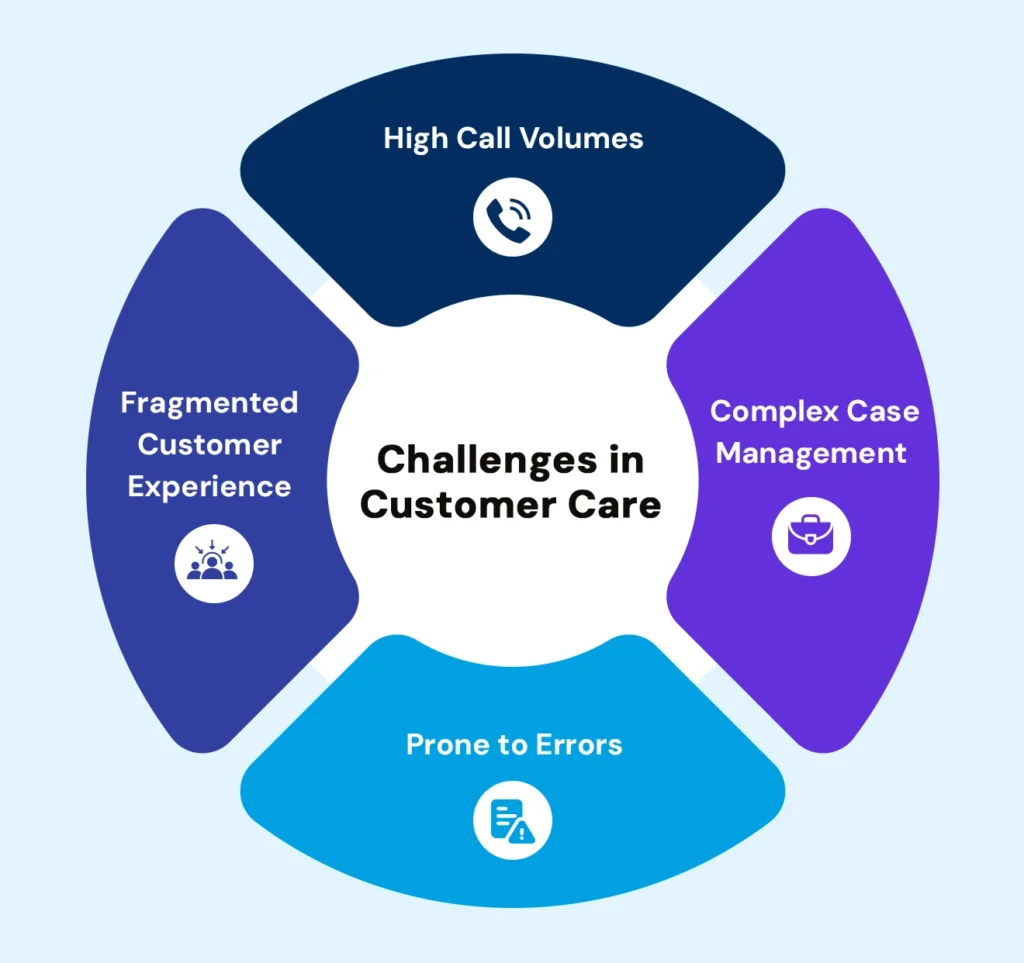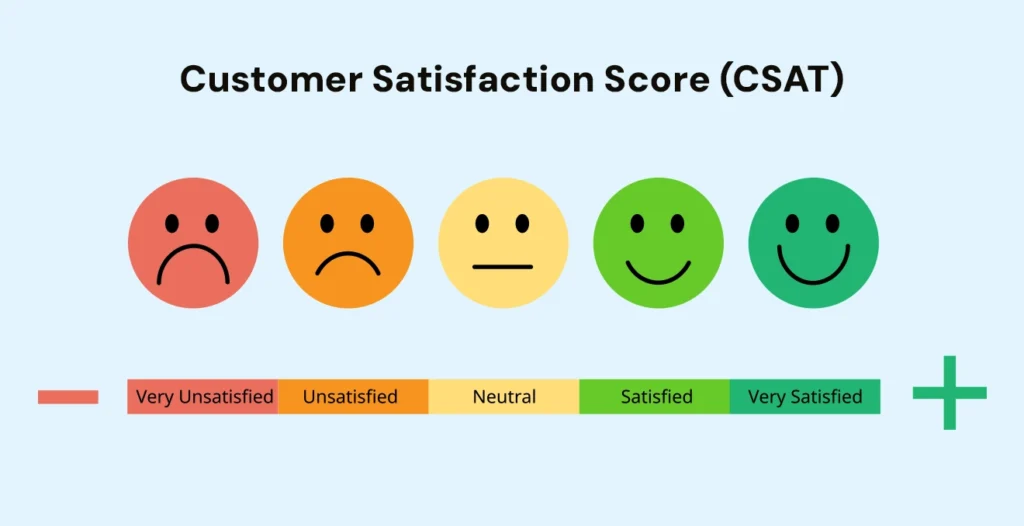Picture this: It’s the year 2015. Despite being under warranty, your smartphone suddenly stops working. As a consequence, you dial customer care support. However, connecting to them takes forever (long waiting lines), and when you eventually do, the resolution offered isn’t prompt. Because the human agent first creates a manual ticket. Then ask you multiple questions. Naturally, it can take some time because humans need to manually read, classify, and route requests, if needed. Here, they spend too much time writing down details before even beginning to solve the problem. Even then, there’s no guarantee that the smartphone would restart. And later, eventually, you had to visit the service center. As a customer, you may feel frustrated and leave a negative review because of how it was handled.

But thanks to AI-powered workflows, such as Salesforce Einstein and Agenforce, this is evolving. These intelligent service workflows use AI and automation to categorize and assign tickets instantly. AI learns from past cases, tags, and SLAs. That’s why, regardless of the volume and complexity of the cases, these tools can quickly:
- Classify new cases
- Fill in case fields
- Offer matching knowledge-based articles
This enables agents to deliver quicker resolutions to generic queries. They can take the time to address more complex cases that require human intelligence, empathy, and decision-making such as offering a smartphone replacement. Result? Better customer satisfaction scores (CSAT) and reduced average handling time (AHT). But how does this work? In this blog, we delve into prevailing challenges in customer care, and how Salesforce AI service solutions can improve CX and drive favorable business outcomes.
Prevailing Challenges in Customer Care
Call centers are often the first point of contact for customers. Queries come from various channels, including calls, emails, live chats, social media, and more. This influx of requests is often disorganized. Customer service representatives cannot afford to miss a single query. However, this usually means delayed responses.

1. High Call Volumes
Call volume can depend on multiple factors, but these are mostly seasonal or during peak hours. For instance, a recent software upgrade with bugs or the launch of a new smartphone by a brand can lead to a surge in high call volume. Since this is often seasonal and not permanent, the company can’t increase the employee headcount right away. That means that customers, after navigating through the IVR, would now have to wait in line for a few minutes before they can actually connect with human support. Inundated with such inquiries, human support also requires some time to offer accurate responses. This includes putting the calls on hold. However, this one step can further frustrate customers.
2. Managing Complex Case Management
Another significant challenge lies in the complexity of managing customer cases. Each interaction may vary in urgency, complexity, and required expertise. It’s not possible to prioritize and resolve such cases promptly without a streamlined process in place.
3. Prone to Errors
Manual processes are prone to human errors. Misrouting of tickets, data entry mistakes, or overlooking critical information. These errors can impact the quality of service. Such instances would multiply in increased volume. And there’s one thing that customers never want to do, and that’s to have to explain the issue from scratch.
4. Fragmented Customer Experience
With numerous channels, including social media, calls, and emails, customers can choose to interact wherever and however they prefer. For instance, a customer might first reach out to chat support to report the phone’s glitches since last night’s phone update. And later that same day, they may call the helpline number, expecting the representative to be already aware of the issue. However, in the absence of integration across these channels, customers’ experiences can be impacted.
Elevate Customer Service with Salesforce AI
Before we jump to how AI can help here, let’s first understand how humans got here. Thanks to the growing proliferation of social media apps and high-speed internet connections, people are consuming content at an unmatched pace. And now with AI into the mix, our patience and attention are wearing thinner than ever. Because AI is already transforming the way we think, work, and process. ChatGPT is the prime example. It has become our go-to intelligent assistant and even a search engine. It can generate customized responses, although subject to human supervision, to complex queries within a few seconds. Similarly, people often seek quick fixes to problems, regardless of the complexity or technical expertise required. And the only way brands can be prepared for this without increasing overhead costs or compromising on quality is by integrating AI tools.
Some examples include Salesforce Agentforce and Einstein.
Salesforce Einstein
Powered by generative AI, Einstein for Service saves agents time and improves service quality with:
- Work Summaries
- Contextual and knowledge-grounded service responses
- Custom AI-generated email drafts
Discover more insights here.
Salesforce Service GPT
It automatically generates service replies and summarizes customer interactions into easy-to-access knowledge articles. It also helps to better prepare field service agents before they arrive at service locations. Be it for repairing an air conditioner, a television, or any other device.
Also, it is powered by the Einstein GPT Trust Layer. This critical step ensures that brands can meet their enterprise data security and compliance protocols by preventing LLMs from retaining sensitive customer data, such as behavioral patterns, addresses, and contact information. Learn more here.
Agentforce
It’s an AI-powered CRM assistant that empowers customer service representatives to deliver personalized service and reach resolutions faster than ever. Some of the advantages include:
- 2X the performance of traditional bots
- 83% of customer queries are handled without a human
- 80% self-service resolution rate
Read more here.
The Advantages of AI-Powered Case Management (Salesforce)
I. Automated Call Routing
AI solutions such as Salesforce use advanced algorithms. Powered by Einstein and Service Cloud Voice, these tools analyze customer inquiries in real time. Route them to the most suitable agent. These systems evaluate factors including;
- Customer profile
- Type of inquiry
- Agent availability
This intelligent routing is a game-changer, as customers are connected to the proper support quickly, minimizing wait times and increasing the probability of first-call resolution rates.
II. Streamlined Resolutions
Salesforce tools provide agents with innovative suggestions and relevant knowledge articles in multiple languages. Additionally, these tools offer a step-by-step action plan based on case details, historical data, and customer sentiment. Secondly, low-complex or routine queries can be resolved using auto-responses. These tools can generate personalized responses for FAQs.
III. Predictive Analytics and Machine Learning
Salesforce AI solutions offer conversational, predictive, and generative capabilities, providing relevant answers and facilitating seamless interactions. It does so by analyzing the context, sentiment, intent, and market trends. These tools can also help anticipate customer needs and preferences proactively. This is particularly useful during peak seasons or peak hours, allowing businesses to allocate resources more effectively and offer personalized services to customers.
With solutions like Service Intelligence, for example, organizations can use predictive analytics to give agents valuable insights, enhancing their efficiency in addressing customer queries.
Important Note
That said, agents need to be adequately trained. They have to be made aware of AI’s potential and benefits without feeling threatened or intimidated. Agents need to be part of the integration process. Demonstrate to them how AI suggests actions such as creating tickets, offering knowledge articles, and automating repetitive tasks. This builds trust and adoption.
The Business Impact
AI-powered case management helps simplify workflows and communication at scale. For instance, Salesforce AI, such as Agentforce empowers service reps to deliver personalized service and reach resolutions faster. And a way to track the efficacy of these tools is by evaluating customer service metrics that you’re already familiar with such as:

1. Improved Customer Satisfaction Score (CSAT)
Measures user satisfaction with a product, website, or service. After the call or chat ends, or once a resolution is offered to the customer, they have the option to fill out the survey. It can be on a scale of 1-10. Where 9 and 10 are considered excellent numbers, whereas anything under six is considered poor. You can assess this by making a comparison of the results before (integrating tools) and after.
2. Enhanced First Response Rate (FRT)
Measures the average time it takes teams to respond to support tickets or customer requests. With automation, you’ll not only experience increased agent productivity and customer satisfaction through faster resolution but also save on overall operational costs.
3. Reduced Average Resolution Time (ART)
The average time it takes a customer success team to resolve each request successfully.
4. Customer Churn and Retention Rate
The churn rate measures the percentage of customers who stop subscribing to or purchasing products from a company. At the same time, retention evaluates a business’s ability to keep its customers. These metrics are particularly crucial for both product and service brands.
Conclusion
As customer expectations continue to evolve, so do the challenges faced by service teams in meeting them. Integrating Salesforce AI tools directly into the workflow helps:
- Overcome challenges such as high call volumes, complex case management
- Increase productivity, CSAT, and FRT
- Elevate customer experiences like never before
Want to explore AI-driven case management tailored to your industry? Our Salesforce consultants can help you identify the right use cases and accelerate implementation. Book a consultation now.

